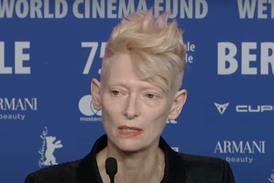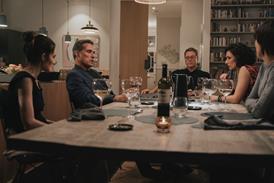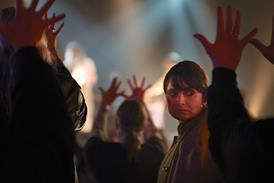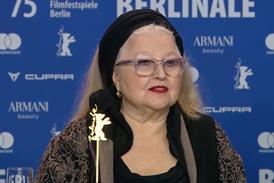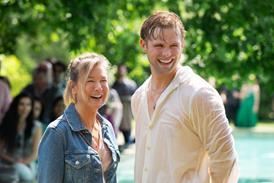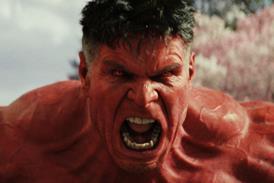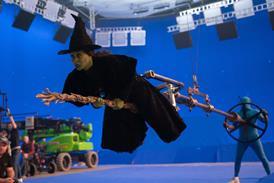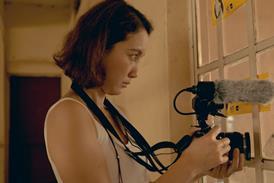Dir: Mor Loushy, Israel-Germany. 2015. 84mins
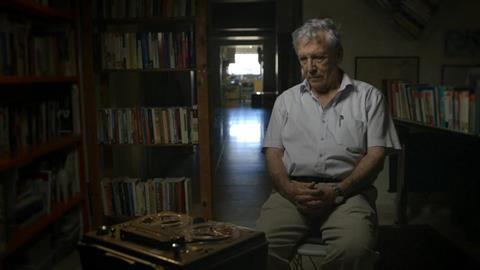
The Six Day War of 1967 is celebrated as a triumph of heroism in Israeli history, a modern victory of David over Goliath. Yet in this documentary the soldiers who fought in it recall that conflict as murderous and shameful in long-suppressed audio tapes that are reaching the public for the first time.
Censored Voices is a reminder that glorious myths of wars and the men who fight them wither under scrutiny, in Israel and everywhere else.
The frank troubling tapes – a jolting reality check almost 50 years later — were recorded weeks after the fighting ended, by no less than the Israeli author Amos Oz, who plays them back on camera for veterans in Censored Voices. The recollections are set against a collage of 1967 footage that mixes the grim and the celebratory.
The film’s revisionist message, with an eminent writer’s imprimatur, will give the doc credibility on the festival circuit, and in the parallel universe of Jewish film festivals. Art house audiences are sure to be contentious, but strong, with television and educational platforms giving the film a wider reach.
The doc by Mor Loushy exhumes Oz’s project, only 30% of which got past Israeli censors and into a book of soldiers’ testimony, The Seventh Day; Soldiers Talk About the Six Day War. The goal was to feel the war as it was experienced by ordinary Israeli troops. The plain-spoken Oz and others took testimony from soldiers who returned to their kibbutzim in the weeks after the Arab surrender, while the glow of victory was still warm. Jews were now heroes, one of them says, and “we’d been accustomed to seeing ourselves as tailors and shopkeepers.”
The surrender of Egypt, Jordan, and Syria and the occupation of territories in those three countries (much of which continues today) changed that perception. The soldiers say, with regret, that it also changed their perceptions of themselves. “Are we doomed to live in the pauses between wars?” one asks.
As the film revisits images of desert warfare, we hear soldiers say that they were told to shoot anyone, and they did. Footage doesn’t show those killings, but several soldiers talk of slaughtering prisoners. Others recall humiliated Egyptian soldiers, with no water, in tears. One recalls saying, “When I get to Cairo, I’m gonna fuck the first woman I see, even if she’s 90” – not unusual talk from young conscripts, but at odds with Israel’s high moral tone.
Air power was crucial for the Israelis in 1967. A slow mournful pan shows the mangled remains of an Egyptian convoy that was annihilated in retreat by the Israeli air force. The eviscerated vehicles and corpses bear a chilling resemblance to an Iraqi troop convoy, famously attacked and shredded into rubble by US aircraft as it fled Kuwait in 1991. Those 1967 images present an inevitable reality of modern mechanized war. Short and efficient, it was still war of a savagery that these young men had never experienced.
Loushy’s doc also includes footage of the taking of Jerusalem, with street fighting and the wholesale detention of Arabs, which soldiers said reminded them of roundups of Jews in the Holocaust. Uniting Jerusalem was saluted as the war’s great achievement, yet these young men cringed at targeting civilians and roughing up prisoners. One of them recalls the murder of 15 Arab soldiers, gunned down after Israelis allowed them to bury their dead.
The doc is not a poll, and the Six Day War remains a sacred milestone for the Jewish state. Yet footage of casualties evoke a version of the naked and the dead that every war has, and young veterans speak with the same regret that we would hear decades later in The Gatekeepers (2012), where retired Israeli intelligence officers deplored what they saw as constant war with occupied Palestinians.
Censored Voices is a reminder that glorious myths of wars and the men who fight them wither under scrutiny, in Israel and everywhere else. You can understand why Israeli authorities wanted to suppress their testimony (although we never get into the details of that) and why Loushy’s disturbing film could open some old wounds.
Production companies, backers: One Man Show, kNow Productions, MADE IN GERMANY, Impact Partners
International sales: Dogwoof Global, global@dogwoof.com
Producers: Daniel Sivan, Hilla Medalia, Neta Zwebner
Co-producers: Melanie Andernach, Knut Losen, Jenny Raskin
Executive Producers: Dan Cogan, Danna Stern, Dagmar Mielke, Nick Fraser, Morgan Spurlock, Jeremy Chilnick, Ethan Goldman
Screenplay: Mor Loushy, Daniel Sivan
Cinematography: Itai Raziel , Avner Shahaf
Editor: Daniel Sivan
Music: Markus Aust




